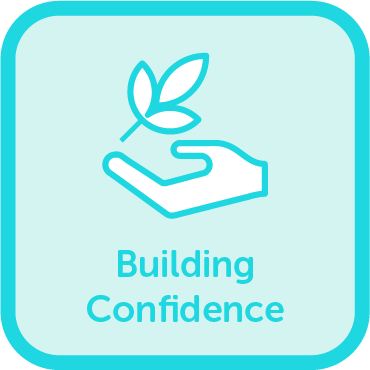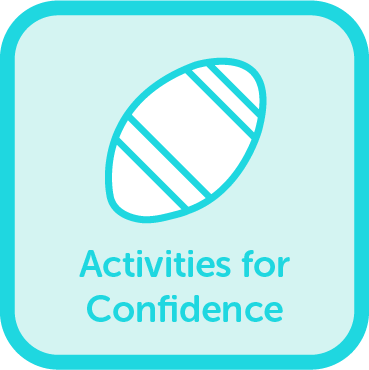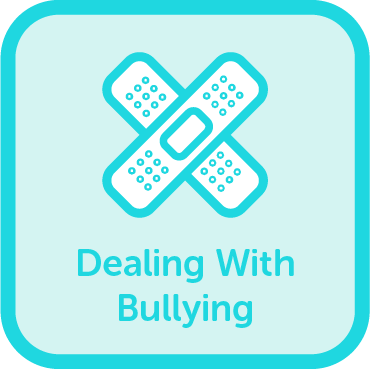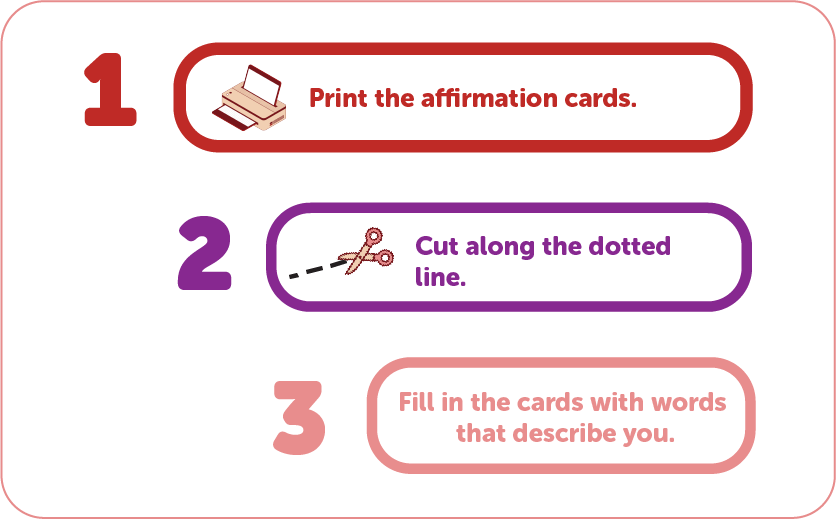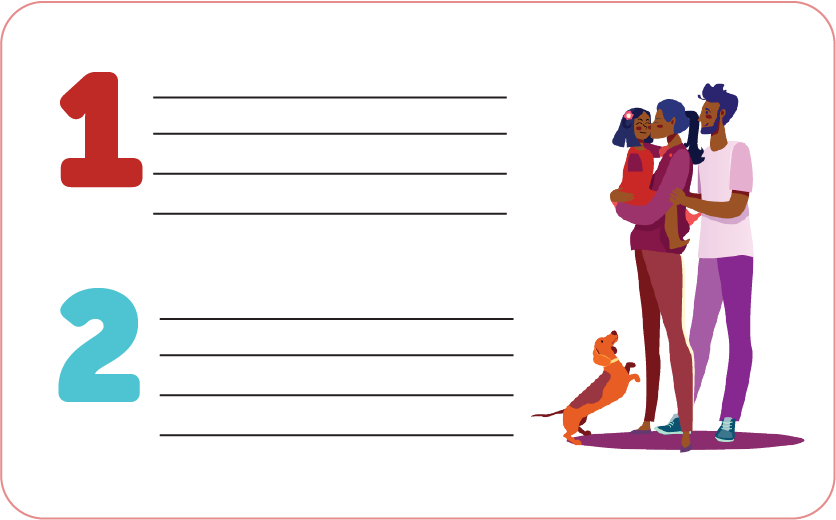
MAKING FRIENDS & BUILDING CONFIDENCE
As your child enters school you may be thinking about what skills you can equip them with to build their confidence and in turn make friends and participate in extracurricular activities.
As children get older, they may develop new feelings about their hand difference so having access to role models and connections with other Aussie Hands families may help build their self-confidence.
It’s also a good time to work with your child to develop self-belief, how to address questions, how to introduce themselves and dealing with bullying should it occur.

Building Confidence
Like many parents, you may be concerned about your child’s confidence and this anxiety can be heightened if your child has a visible physical difference. A 2021 Aussie Hands survey found that approximately 57% of members said that confidence building and psychological support were among their top concerns for school aged children with a hand difference.
It can be reassuring to know that, although children do experience stress regarding their hand difference, their level of self-esteem and self-concept is generally the same as that of other children (Anderson et al., 2009).
A study by McDougall et al., (2020) found that although the appearance of their hand difference bothers some children, others are proud of how their hand looks. When asked what she liked about her hand difference, 10-year-old Kate responded:
‘That I’m different, that I’m not the same as everyone else. (.) I kind of like the scars’
Hear What Aussie Hands Kids Like About Their Hand
After speaking with Aussie Hands families, teachers and psychologists we have put together some ideas on how to build your child’s confidence.

Give them meaningful responsibility
Aussie Hands parents say that putting your child in charge of tasks with purpose can foster independence and communicate that you trust them and their abilities.
‘Taking responsibility for doing things increases their confidence. They realise, “Oh, I can do this, I can achieve this.”’
Here are some ideas you can try with your child:
- Help with the cooking
- Create new recipes
- Feed the pets
- Walk the dog
- Take out the rubbish
- Unload the dishwasher
You can also extend this by encouraging your child to help other people. Helping others provides a sense of purpose and is a great way to solidify knowledge and skills. They could:
- Help the neighbours with chores
- Help friends with their homework
- Teach friends or family a new skill
- Volunteer in the wider community

Set your child up for success
One way to build confidence is to focus on something your child is good at and encourage further development of that skill. Children love a challenge, and working gradually beyond their current skill level is optimal for growth and can provide them with a sense of pride Bunker (1991).
When your child is proud of their achievements, it can make them more comfortable to try new things. When they are trying out a new activity that they find difficult, you can also gently remind them that they are still learning and will improve. You can then link their efforts back to something they have mastered.
‘Remind them of when they were learning another activity that they are good at, for example riding a bike. It felt clunky, they were wobbly, and they fell off. But then, they got more skilled, gained confidence, and it became something they were really good at. Help them identify where they are in the learning process and that it will take time.’
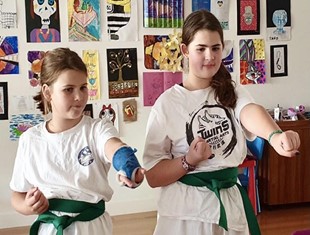 It’s also important to step back and let your child problem solve. This will add to their sense of accomplishment and help build persistence. In addition, this will help them tackle other problems that they will encounter throughout life.
It’s also important to step back and let your child problem solve. This will add to their sense of accomplishment and help build persistence. In addition, this will help them tackle other problems that they will encounter throughout life.‘Praise must be linked to effort or achievement, not just a constant stream of positive messages. Children need to be challenged to try new things and, of course, fail at some of them just like we all do when learning to walk – we fail but get up and keep trying until we succeed. Encourage and coach and allow falls!’

Encourage participation in extracurricular activities
Participating in extracurricular activities provides an excellent opportunity for your child to learn new skills. In addition, they are a great way to improve physical health, build discipline and foster persistence – all of which can improve confidence. They can also provide an opportunity for your child to participate in social interactions and make new friends, which can also play a large part in boosting your child’s confidence.
‘Make sure your young person has plenty of things that they can do where they get a sense of mastery or a sense of social connection or meaningfulness out of those activities. It may not be that they enjoy school, and that’s okay. But do they have plenty of other things that they do well in to help support that confidence.’

Talk to your child about their feelings
Hearing your child’s struggles can be hard to take in, however, the most resilient children have felt that their parents have heard them and let them feel sad if that is how they are feeling. It might be helpful to remind them of other people they can talk to as well, whether that’s other family members, teachers, a guidance counsellor, or friends.
It’s important to validate your child’s feelings, but it can also be helpful to remind your child they are not alone, and everybody has things that they are worried about.
‘Foster an understanding that everybody has something in their life that they are dealing with. Yours may be physical and visible, but you don’t know what other people are going through.’
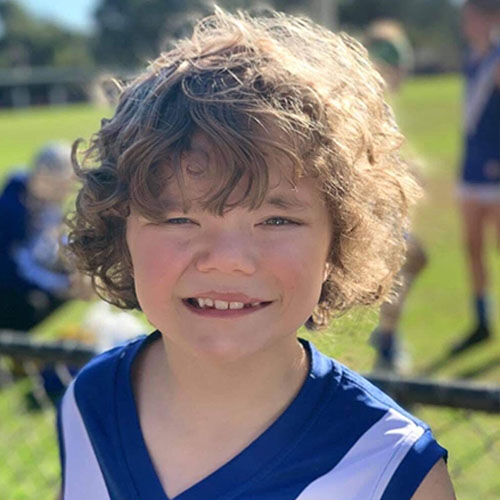
Activities For Confidence
Affirmation cards
Here’s a fun activity for your child to get creative making and decorating their very own. This will encourage positive self-thoughts and help remind them just how amazing they are! Examples of affirmations could include:
- I am smart
- I can play soccer really well
- I have really nice friends
Positive conversations
One of the biggest causes of stress in social situations for children with a hand difference is unsolicited questioning (McDougall et al. 2020). This can be from people they meet for the first time, but even from friends with the best intentions, asking questions that may cause stress.
Many Aussie Hands parents have said that reassuring their children that other kids are naturally curious can help minimise stress, plus preparing your child with responses to questions can help minimise anxiety.
Dealing With Bullying
You may have lots of questions about how you can equip your child against bullying. With approximately 1 in 4 students experiencing bullying, Aussie Hands parents say that they wondered about things like – how can my child prepare for unkind comments? How can I tell if my child is being bullied? What conversations should I have with my child?
Kids with a hand difference will occasionally experience unkind questions or comments about their hands, but it usually stems from a lack of understanding rather than malice. Any bullying that is experienced usually has a different focus, and a lot of kids aren’t bullied at all.
Here are answers from experts and parents.
Bullying definition
Here is the definition of bullying according to the Victoria State Government Department of Education and Training:
Bullying is an ongoing and deliberate misuse of power in relationships through repeated verbal, physical and/or social behaviour that intends to cause physical, social and/or psychological harm. It can involve an individual or a group misusing their power, or perceived power, over one or more persons who feel unable to stop it from happening.
Bullying can happen in person or online, via various digital platforms and devices and it can be obvious (overt) or hidden (covert). Bullying behaviour is repeated, or has the potential to be repeated, over time (for example, through sharing of digital records).
Bullying of any form or for any reason can have immediate, medium and long-term effects on those involved, including bystanders. Single incidents and conflict or fights between equals, whether in person or online, are not defined as bullying.

Prepare your child for unkind comments
Instilling your child with confidence, resilience and the ability to problem solve is the best way that you can prepare your child for any unkind comments or potential bullying. Making sure they feel supported by their family is also a great way for them to know there are people who have their back no matter what else is going on.
‘As a parent, you want to be there all the time, but the reality is that you can’t. Things will happen. You need to build their confidence and resilience so that they can learn to deal with situations themselves.’

Look out for signs of bullying
Children can often feel embarrassed or too self-conscious to disclose being bullied, so experts recommend to watch out for key signs. Bullying will affect every child differently, but here are some common signs to look out for:
- Keeping to themselves more than usual
- Changes in personality, such as becoming more anxious, sad or angry than usual
- Acting particularly sensitively about a characteristic. For example, if they are being bullied about their hand difference, they may be particularly sensitive about their hand. This may include refusing to use their assistive devices, or keeping their arm hidden in their sleeve.
- No longer wanting to go to school or participate in extracurricular activities
- Nightmares or changes in sleep patterns
- Reverting to bedwetting

Talk to your child about it
If you’ve noticed changes in your child and suspect bullying, the best thing you can do is talk to them about it. Talking to your child about the bullying can be a huge stress reliever for them. Talking also sends the message to them that you are there for them.
You might be feeling angry and upset that this is happening, but it’s best stay calm and be prepared to sit in your own feelings before addressing the issue with your child. This will help you to properly acknowledge and support your child’s feelings.
‘If you see changes in your child’s mood or behaviour, ask them what is troubling them. You may need to persist, as often children are reluctant to talk about bullying but it’s important you know what is happening. Sitting on their bed with them before they go to sleep and gently asking what the matter is can be successful.’

Talk to the school
The next thing you can do is talk to your child’s school. They may be able to provide you with some further context about the situation, or if they are not aware of what is going on, they can implement a strategy to tackle the issue.
‘…There has been some form of name calling which has really upset Tegan but I have always spoken to the teachers about what is going on for her and they have been brilliant at following up with the kids involved. I find if it is spoken about quickly it doesn’t progress further…. Take comfort that they will look after your child. If you feel this is lacking, speak up loudly.’

Practice responses
Here are some ways to help your child deal with bullying:
- Discuss how they can respond to bullying with them, and practice with them through roleplay.
- Encourage responses which do not inflame the situation but rather deflect the intensity. Some parents find that having some fun can help your child to relieve the tension and give your child a feeling of regaining control. Humour can be used as a way for your child to be more assertive.
- Remind them that they are not the problem, the problem lies with the person who is doing the bullying or being unkind.
What can you do if the teacher says something out of line?
Teachers and other adults can also sometimes say hurtful things which may stem from a lack of education or awareness on a topic and was probably an accident. Some options for approaching this situation include:
- Organise a time to talk with the teacher as a parent
- Organise a time to talk to the teacher with your child
- Help your child to write a letter to the teacher
Here is a Dealing with Bullying activity for your child to do.
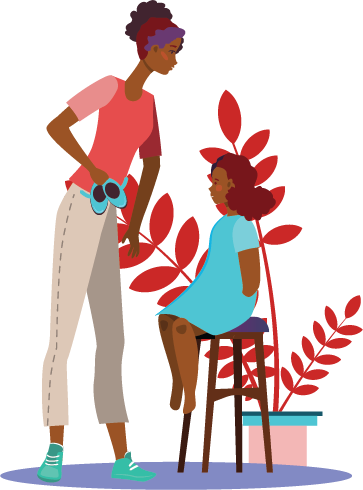
What other information is available for dealing with bullies?
Here are a few suggestions for dealing with bullying behaviour
eSafetyCommissioner: Cyberbulling





